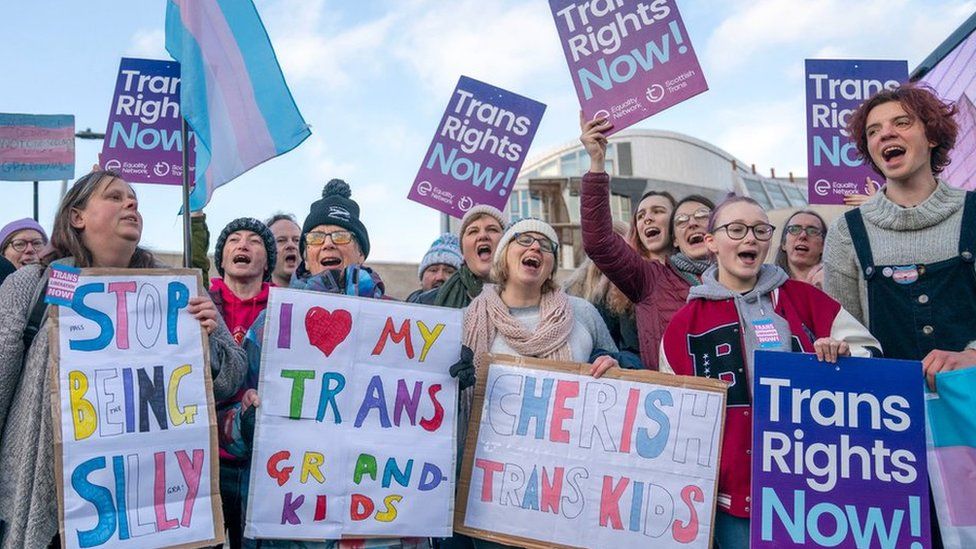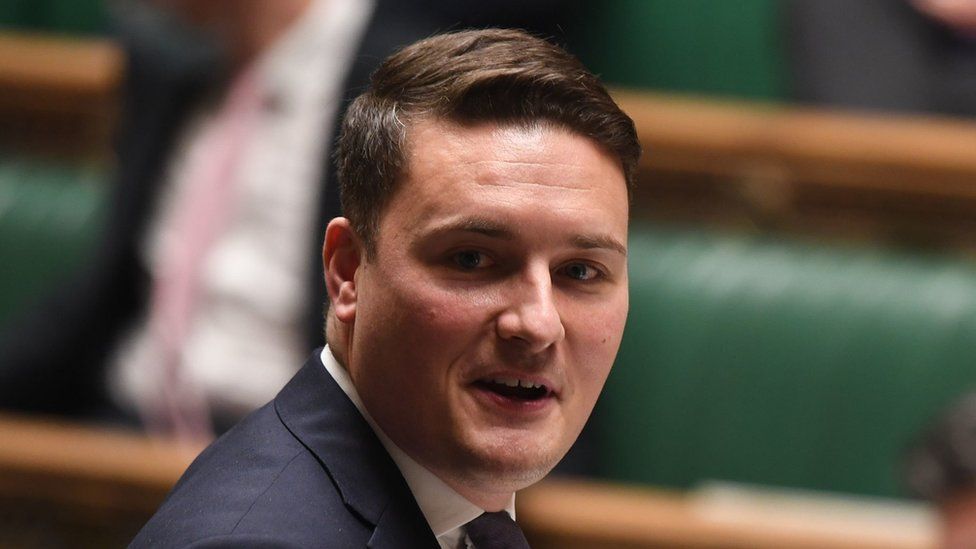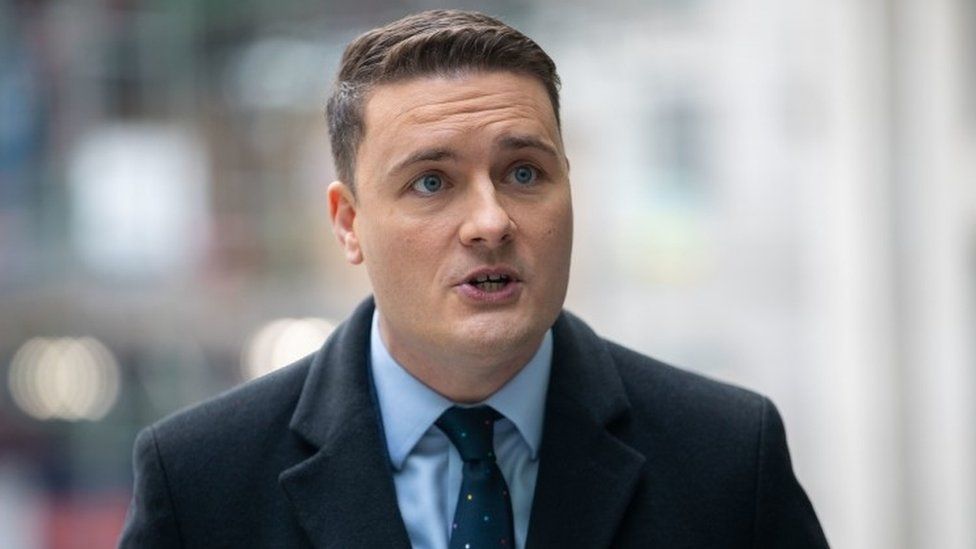Keir Starmer: The NHS must reform to survive
This video can not be played
To play this video you need to enable JavaScript in your browser.
Labour leader Sir Keir Starmer has said the NHS must reform in order to survive.
He told the BBC the NHS should always be free at the point of use but there was also a role for the private sector, including to help clear waiting lists.
He also proposed allowing patients to make self-referrals for conditions like back pain to cut bureaucracy.
Senior doctors have warned the NHS is in crisis, with services under huge pressure this winter.
Asked if any reforms for the health service were off the table, Sir Keir told the BBC’s Sunday with Laura Kuenssberg programme: “No, we want to look at all sorts of reform.”
“The reason I want to reform the health service is because I want to preserve it. I think if we don’t reform the health service we will be in managed decline,” he added.
“It will always have to be free at the point of use, it of course should be a public service. But that doesn’t mean we shouldn’t use effectively the private sector as well.”
- Laura Kuenssberg: Is Keir Starmer a prime minister in waiting?
- Starmer says 16 is too young to change legal gender
Sir Keir said the NHS was facing “the worst crisis we’ve ever seen”.
With more than seven million people waiting for NHS treatment in England, he said a Labour government would make more use of the private sector to help clear waiting lists.
The Labour leader also criticised the “bureaucracy” in some parts of the health service, adding: “Anybody who’s been on the 8 o’clock call trying to get a GP appointment knows exactly what I’m talking about.”
He said he wanted to “lift the burden” on the NHS by considering allowing patients to self-refer to specialists for some conditions like back pain.
The interview came after the Labour leader set out his vision for the health service in an article for the Sunday Telegraph.
He argued the idea the NHS is still the envy of the world is “plainly wrong” and that the situation for patients was “intolerable and dangerous”.
Sir Keir also said his party would double the number of graduating doctors and district nurses, increase training placements for nurses and midwives, and gradually turn family doctors into direct employees of the health service.
“It’s time for us to think about a new, sustainable system, one that allows GPs to focus on caring for patients rather than the admin that comes with effectively running a small business,” he wrote.
A Department of Health and Social Care source said Labour’s plan for GP services was “an expensive top-down reorganisation” and that it was “uncosted and unfunded”.
“We are growing the GP workforce, have a record number of doctors in training and we have recruited over 21,000 additional staff into general practice,” the source said.
This video can not be played
To play this video you need to enable JavaScript in your browser.
Last month Labour’s shadow health secretary Wes Streeting said the health service was in an “existential” crisis.
Attempts to reform the NHS have proved politically contentious, especially for Labour. Some Labour MPs are ideologically opposed to private-sector involvement in the health service.
But now Sir Keir has appeared to take a hit at some on the left of his party, and its previous leadership under Jeremy Corbyn, arguing that the NHS should not be “off-limits [or] treated as a shrine rather than a service”.
Labour’s proposals come against a backdrop of winter pressures on the health service and strikes by nurses and ambulance workers.
Last week, figures showed the proportion of patients seen within four hours in England’s A&Es fell to a record low of 65% in December.
Prime Minister Rishi Sunak has said the NHS is a priority for his premiership and earlier this month promised to cut waiting lists.
The government is also giving the health service £200m to buy thousands of beds in care homes to free up space in hospitals.
Meanwhile, it is pushing forward with controversial legislation which would give ministers the power to enforce minimum service levels during strike action for sectors including the NHS, education and the railways.
- Postcode check: How’s the NHS coping in your area?
- The NHS crisis – decades in the making
Elsewhere in his interview, Sir Keir told the BBC he had some concerns over a bill passed in Scotland, which would make it easier for people to change their legally recognised gender.
The new rules lower the age that people can apply for a gender recognition certificate to 16, and remove the need for a medical diagnosis of gender dysphoria.
The Labour leader said he did not believe 16 was old enough for someone to change their gender.
He did not rule out supporting the UK government in potentially blocking the Scottish legislation but said he would “wait and see” what the government proposes.
He added that Labour’s position was it wanted to “modernise” the legislation to remove “some of the indignities” in the process of changing gender.
Sir Keir also refused to recommit to abolishing university tuition fees if Labour wins power – a pledge he made when he successfully ran to be party leader in 2020.
Asked if he would stick to the promise, he told the BBC the tuition fees system “needs to be changed” but given the state of the economy, every commitment made by Labour had to be “fully costed” and affordable.
He added that the party was “looking at the options” in relation to tuition fees and “haven’t got a settled view”.
-
So is Keir Starmer a prime minister in waiting?
-
1 day ago

-
-
Starmer: ’16 is too young to change legal gender’
-
5 hours ago

-
-
Labour would go private to cut NHS waiting lists
-
7 January 2022

-
-
Streeting: I won’t pretend NHS is envy of world
-
16 December 2022

-
-
Hospitals pay £5,200 for one agency doctor’s shift
-
11 December 2022

-
Published at Sun, 15 Jan 2023 13:12:18 +0000
